Led lighted table vanity makeup Hollywood Mirror With 14 Light Bulbs For Girl Vanity Cosmetic
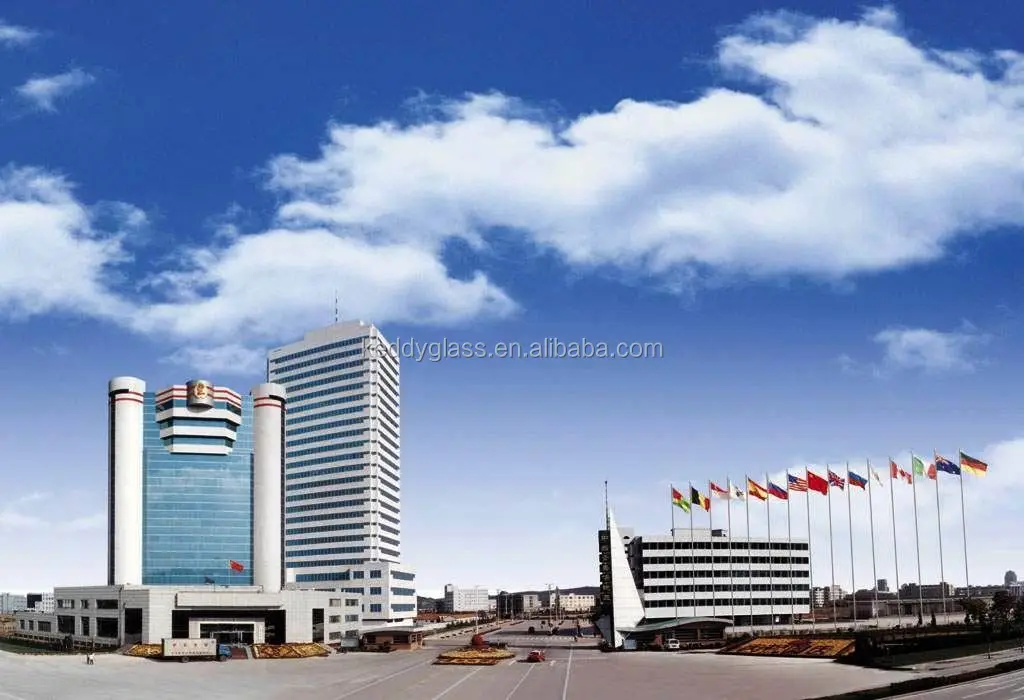
Qingdao Keddy Glass Co., Ltd. is an active, energetic, fast-responding, honest and responsible glass product supplier. The company is located in Qingdao, Shandong Province in the north of China, only 10 kilometers away from Qingdao Port, which is China's third largest port. Keddy Glass specializes in the production and sale of 3mm-25mm tempered glass, laminated glass, insulating glass, float glass, coated glass and other architectural glass; frosted glass, screen printing glass, painted glass, bathroom door glass and other decorative glass; aluminum mirror,silver mirror, copper-free mirror, antique mirror, embossing mirror, sheet aluminum mirror, hot bending mirror, dressing mirror, bathroom mirror, etc. Keddy Glass has a professional, efficient and experienced sales team to help you source the right products and solve the problems encountered in your procurement. Keddy Glass puts product quality and service first. With advanced production equipment and high-quality raw material suppliers, each piece of processed products is guaranteed to be the best.Qingdao Keddy Glass Co., Ltd. is an active, energetic, fast-responding, honest and responsible glass product supplier. The company is located in Qingdao, Shandong Province in the north of China, only 10 kilometers away from Qingdao Port, which is China's third largest port. Keddy Glass specializes in the production and sale of 3mm-25mm tempered glass, laminated glass, insulating glass, float glass, coated glass and other architectural glass; frosted glass, screen printing glass, painted glass, bathroom door glass and other decorative glass; aluminum mirror,silver mirror, copper-free mirror, antique mirror, embossing mirror, sheet aluminum mirror, hot bending mirror, dressing mirror, bathroom mirror, etc. Keddy Glass has a professional, efficient and experienced sales team to help you source the right products and solve the problems encountered in your procurement. Keddy Glass puts product quality and service first. With advanced production equipment and high-quality raw material suppliers, each piece of processed products is guaranteed to be the best.
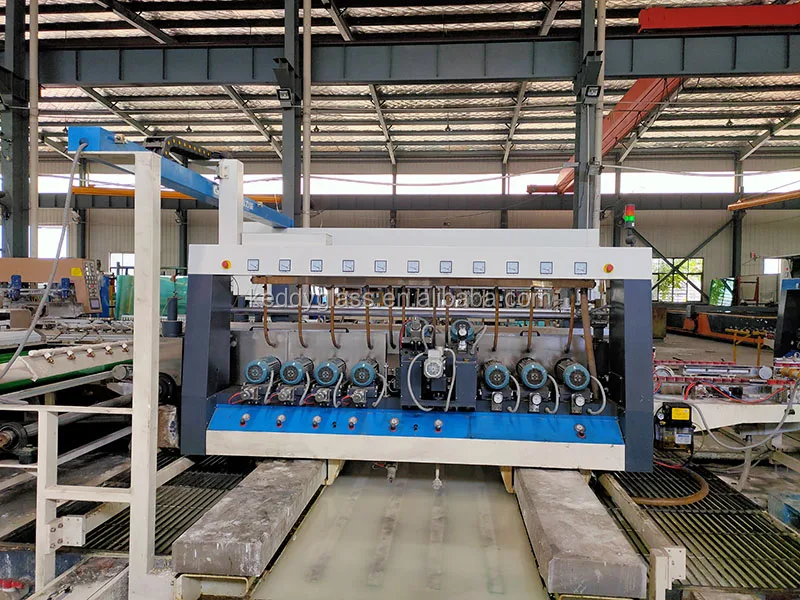
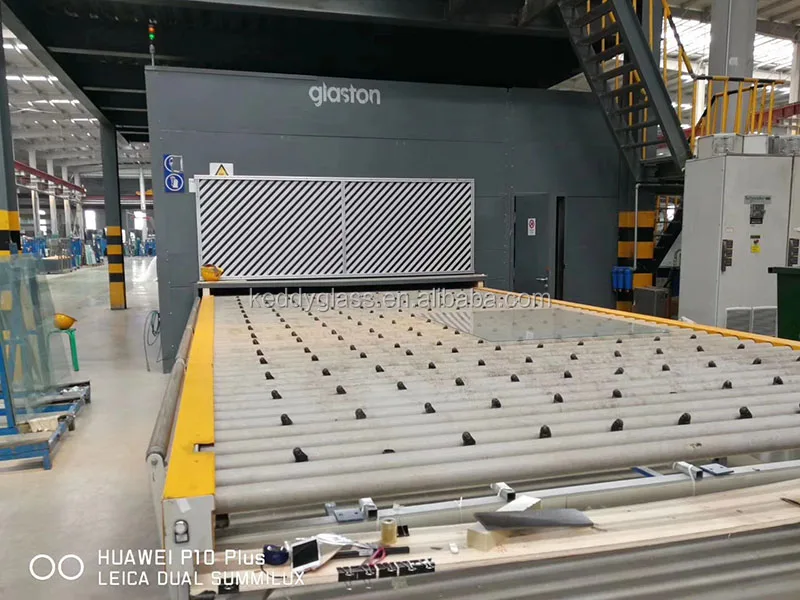
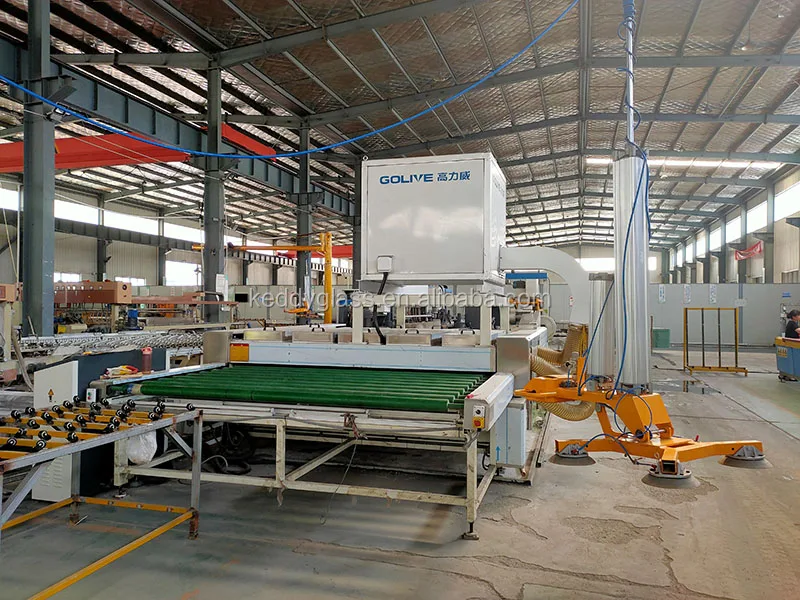
Silver Mirror Glass is an ordinary mirror, coated on its back surface with silver, which produces images by reflection. This kind of glass mirror is produced by coating a silver, copper film and two or more layers of waterproof paint on the back surface of float glass, which perfectly resists acid and moisture. A silver glass mirror provides clear and actual images, is quite durable, and is widely used for furniture, bathroom and other decorative purposes. Decorative glass mirrors are usually handcrafted. A variety of shades, shapes and glass thickness are often available.
Aluminum Mirror is produced through horizontal production line, which is the most advanced production equipment for coating aluminum mirror. High quality clear float and modern mirror equipment combine to produce competitively priced mirrors of exceptionally high quality. It is suitable for further processed and edge working. Our colored mirror is produced by vacuum coating a layer of aluminum on the tinted glass, which can supply you a different and nice decorating effect.
Safety Mirror is made of high quality silver mirror, copper free silver mirror, or Aluminum mirror and high viscous vinyl film (smooth film- Category I or woven film- Category II). The safety film is applied to the back of the mirror. If the mirror is broken, the vinyl film holds the fragments of glass in place, thus reducing the risk of injury. This makes it the ideal choice for applications anywhere in the home where there is a greater risk of accidental damage, e.g. doors, wardrobes and children's rooms.









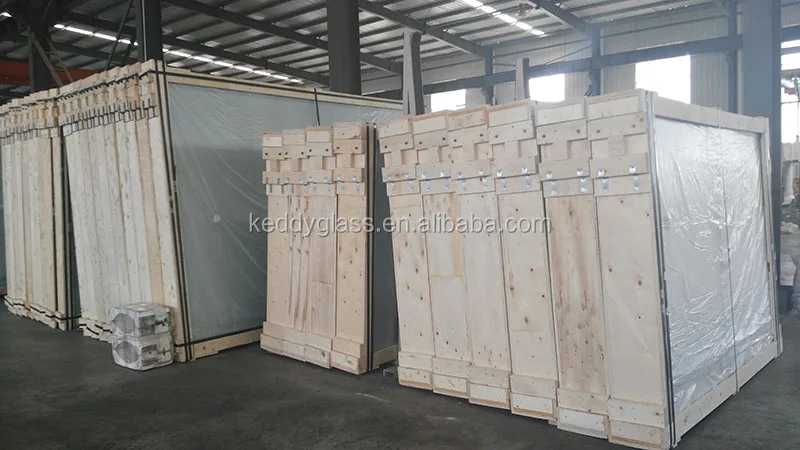
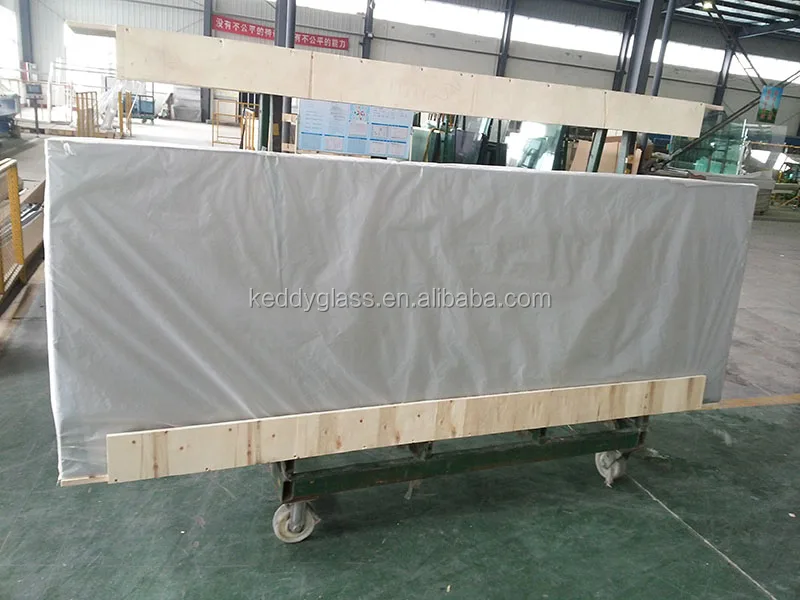
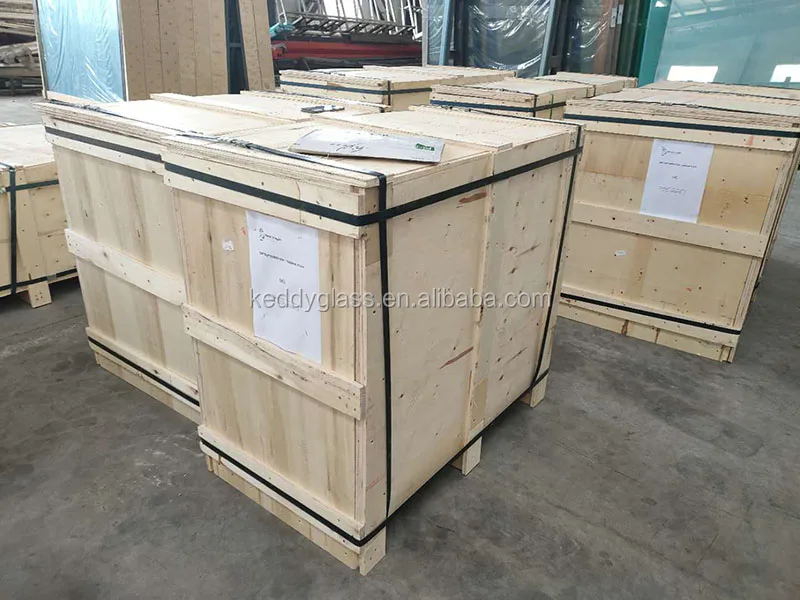



- 1.12 years experiences on toughened glass manufacturing and exporting.
2.We have strong technical support and production capacity.
3.Our factory close to the sea port, transportation is very convenience.,CAN DO DOOR TO DOOR
4.Professional sales team, offering personalized and dedicated services
5.Unique designed strong wooden cases and container fixed method can solve the problems of breakage.
6.Top quality toughened glass with CE, ISO9001,CCC,SGCC,ANSIZ97.1-2015,AS/NZS 2208 Certificate.
7.OEM is feasible, and welcome to visit our factory.
8.Favorable price and reasonable payment terms;
9.We can guarantee the delivery time.
- 1.12 years experiences on toughened glass manufacturing and exporting.

GB15763.3,Chinese standard.
EN12543,European standard
EN12600,European standard.
ANSI Z97.1,American standard.
AS/NZS 2208,Australian standard.
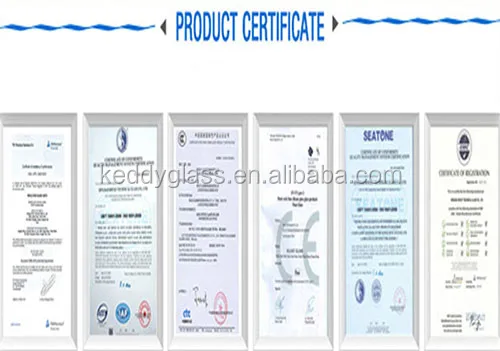
Q1: How to judge the quality of float glass?
A1: Flatness, transparency, colorless, impurities, bubbles, etc.
Q2: How to reduce the self-implosion?
A2: The high quality float method is used for hot dip treatment, edge treatment and proper stress intensity. Pay attention to avoid side collision of glass during installation.
Q3: Scope of use of toughened glass?
A3: Safety is not involved in some parts of the building, but it is necessary to install toughened glass to improve the compressive strength and explosion-proof capacity,not to endanger the person safety
Q4: When toughened glass is broken, is the grain smaller the better?
A4: No, the smaller the particle, the easier it is to explode.
Q5: Can toughened glass and semi-toughened glass be made into laminated glass?
A5: Can't. The national standard stipulates: the glass that stresses the difference cannot make laminated glass, because in use process, the pressure that two pieces of glass bears is different.
Q6: Whether the laminated glass can fire, can the sound insulation?
A6: No, the smaller the particle, the easier it is to explode.
Q7: How many uv low-e glass can reduce?
A7: It is not fireproof glass, but has certain fireproof ability, also can soundproof, laminated glass is inside whole sound wave frequency range, in control noise is very good.
Q8: Does the air in the insulating glass do not oxidize the membrane?
A8: No, because there is a molecular sieve in the insulating glass, and the molecular sieve always keeps the air dry, so the membrane is not oxidized.
Q9: How much ultraviolet radiation can low-e glass reduce?
A9: It can reduce uv by 14% compared to heat reflecting glass. That's a 25 percent reduction in uv radiation compared to white glass.
Q1: How to judge the quality of float glass?A1: Flatness, transparency, colorless, impurities, bubbles, etc.
Q2: How to reduce the self-implosion?
A2: The high quality float method is used for hot dip treatment, edge treatment and proper stress intensity. Pay attention to avoid side collision of glass during installation.
Q3: Scope of use of toughened glass?
A3: Safety is not involved in some parts of the building, but it is necessary to install toughened glass to improve the compressive strength and explosion-proof capacity,not to endanger the person safety
Q4: When toughened glass is broken, is the grain smaller the better?
A4: No, the smaller the particle, the easier it is to explode.
Q5: Can toughened glass and semi-toughened glass be made into laminated glass?
A5: Can't. The national standard stipulates: the glass that stresses the difference cannot make laminated glass, because in use process, the pressure that two pieces of glass bears is different.
Q6: Whether the laminated glass can fire, can the sound insulation?
A6: No, the smaller the particle, the easier it is to explode.
Q7: How many uv low-e glass can reduce?
A7: It is not fireproof glass, but has certain fireproof ability, also can soundproof, laminated glass is inside whole sound wave frequency range, in control noise is very good.
Q8: Does the air in the insulating glass do not oxidize the membrane?
A8: No, because there is a molecular sieve in the insulating glass, and the molecular sieve always keeps the air dry, so the membrane is not oxidized.
Q9: How much ultraviolet radiation can low-e glass reduce?
A9: It can reduce uv by 14% compared to heat reflecting glass. That's a 25 percent reduction in uv radiation compared to white glass.
We have more categories for you. lf you can't find the products you want above,just fill in the form and tell us whatproducts you want to import from China.


















